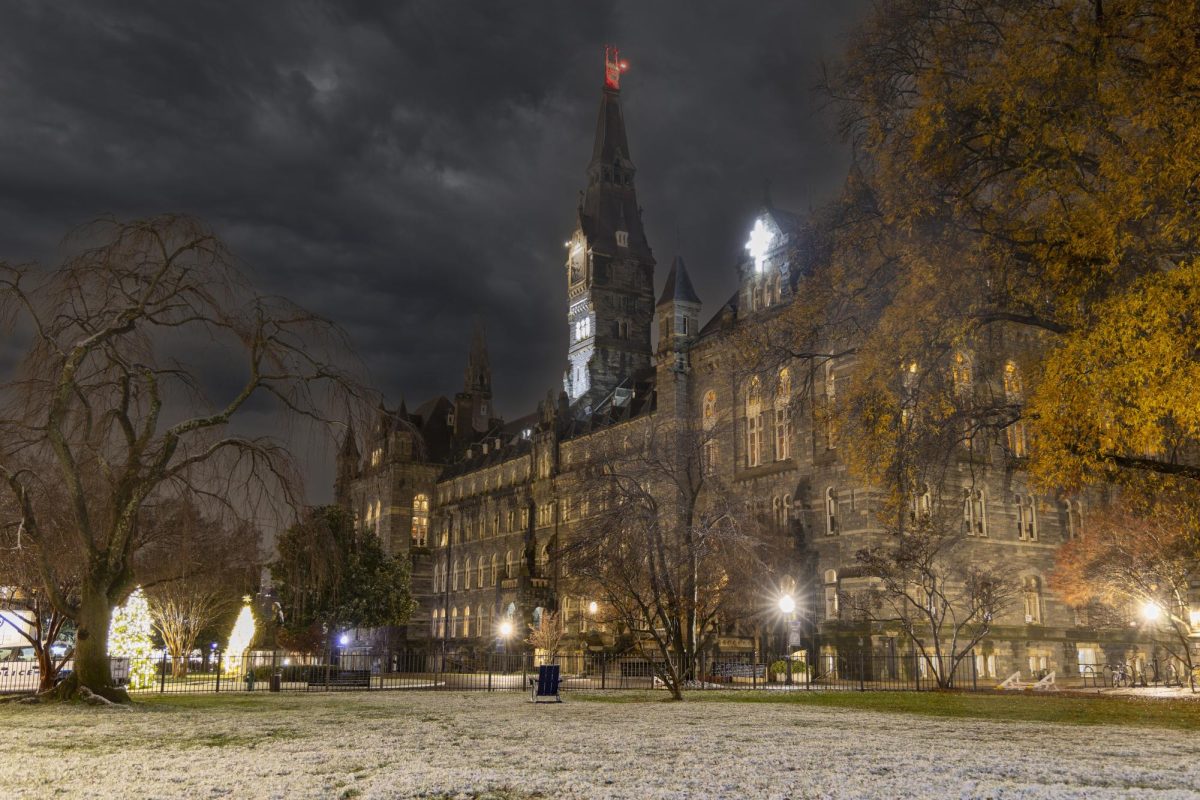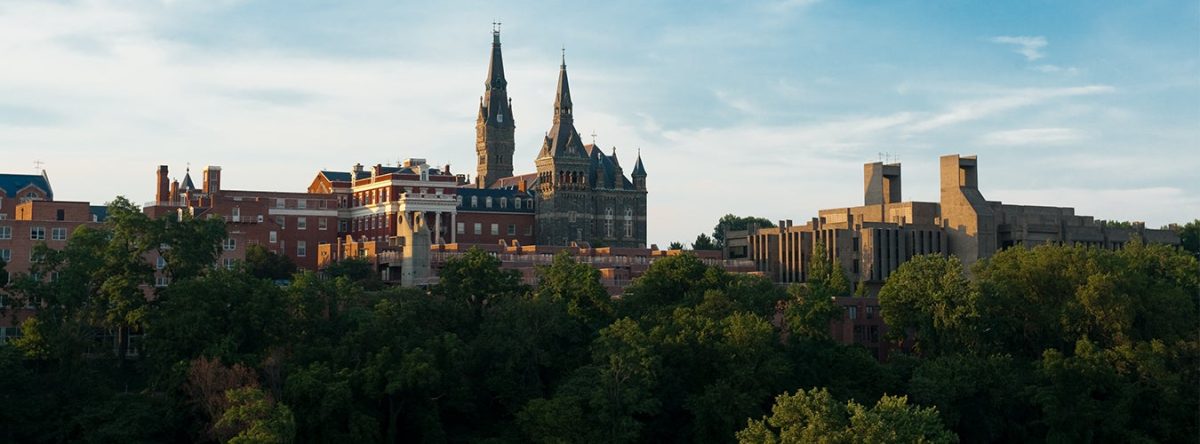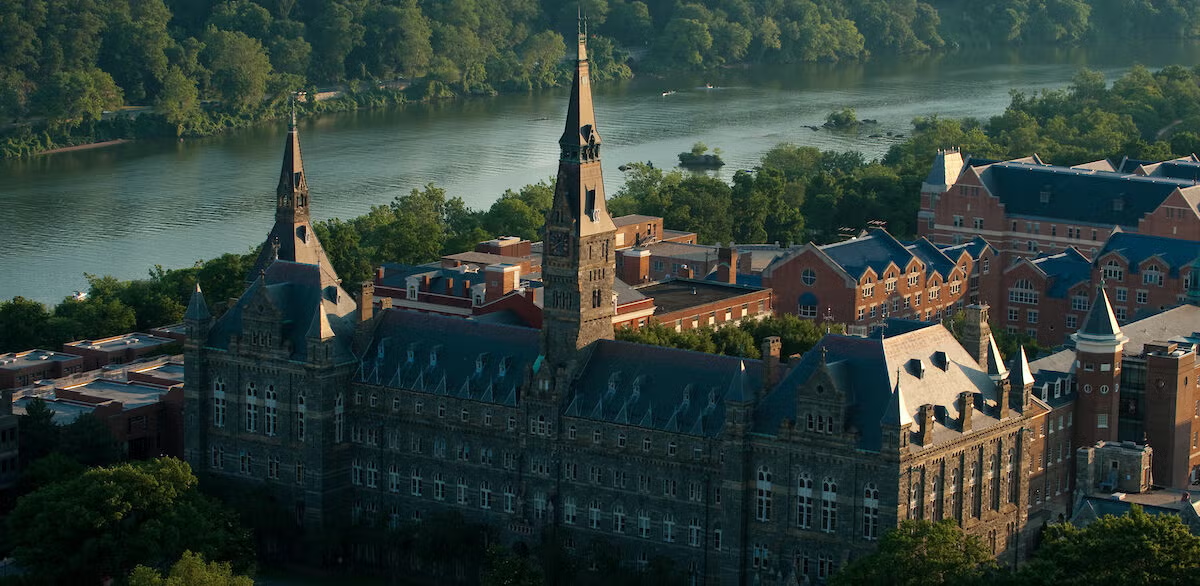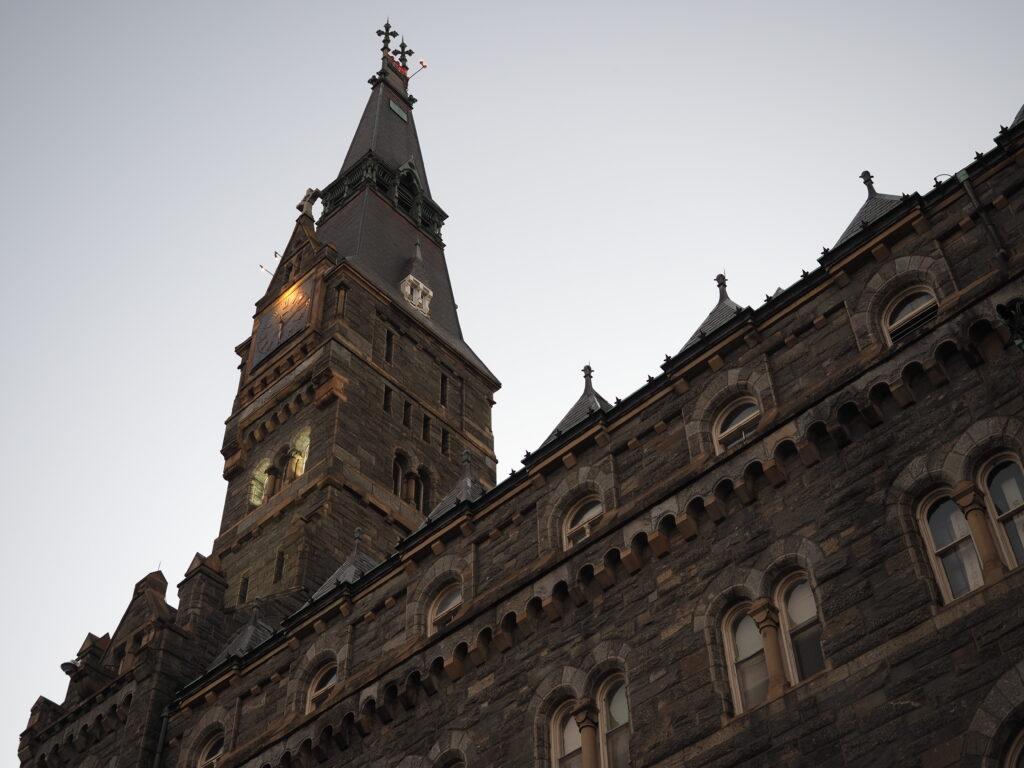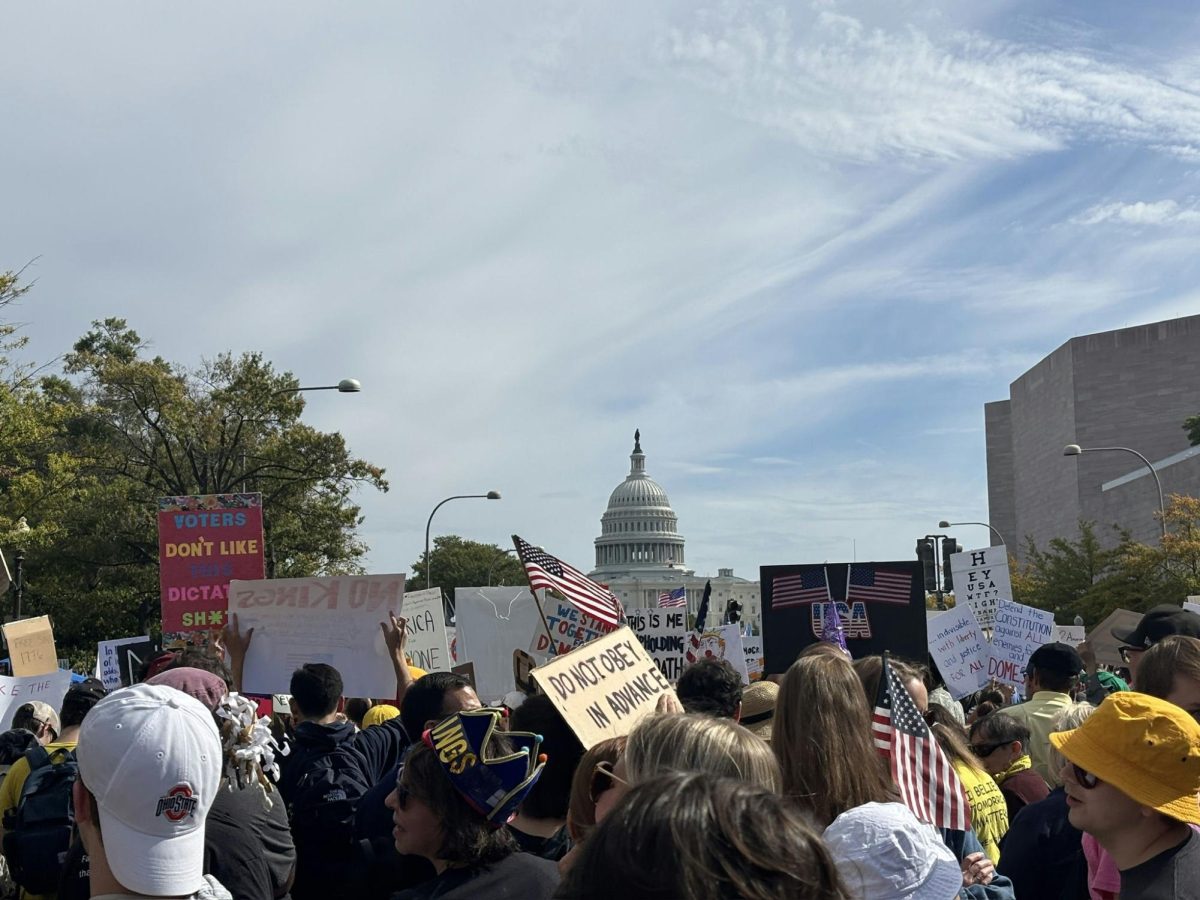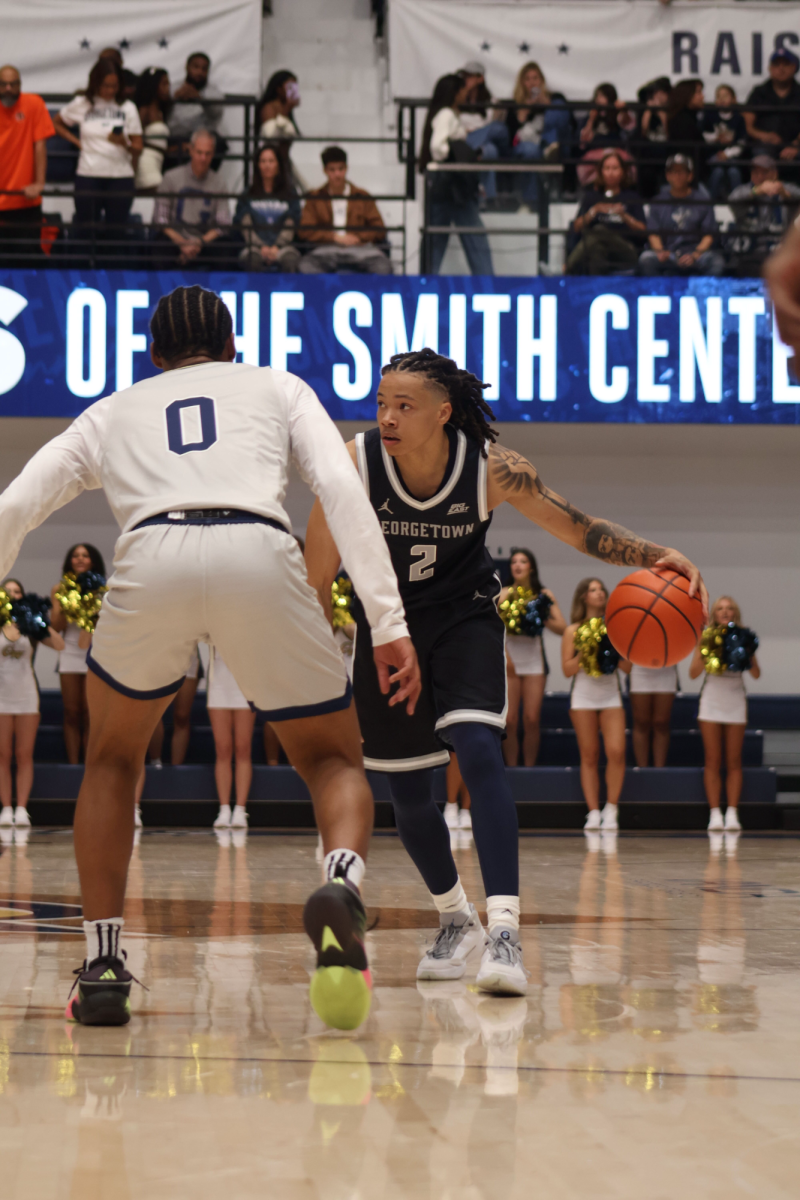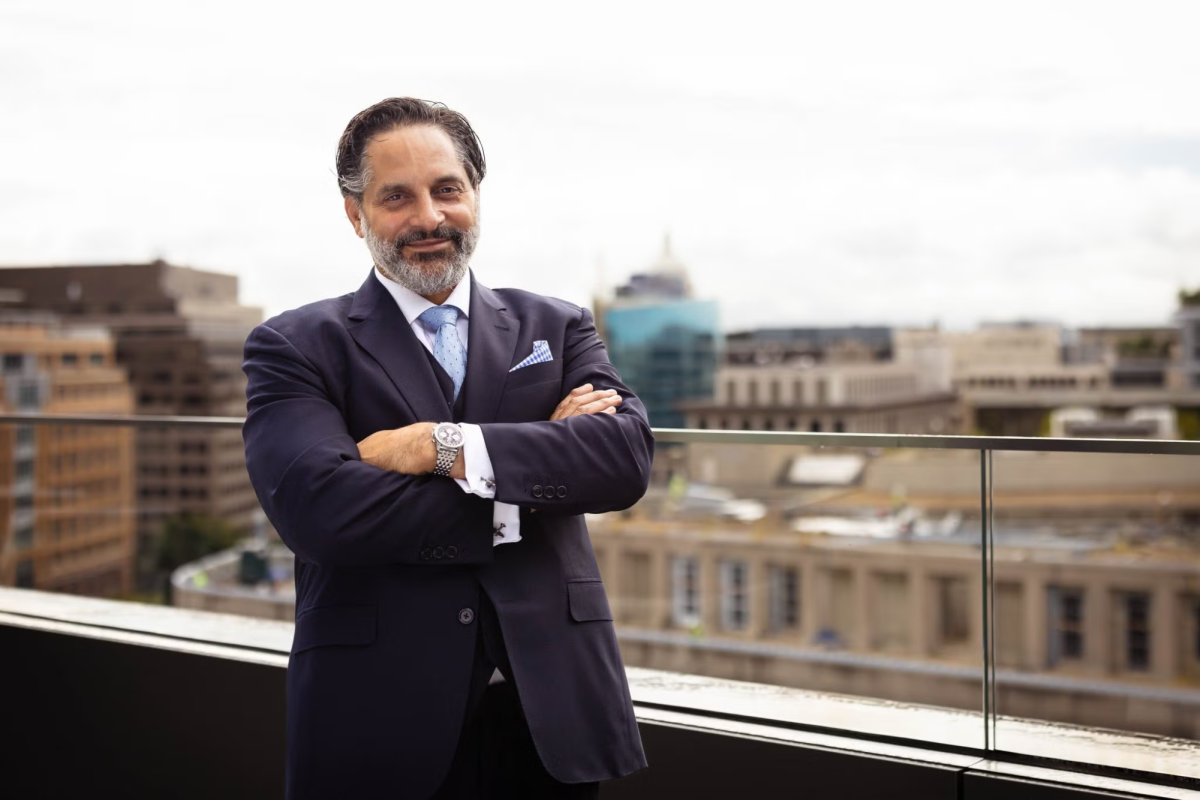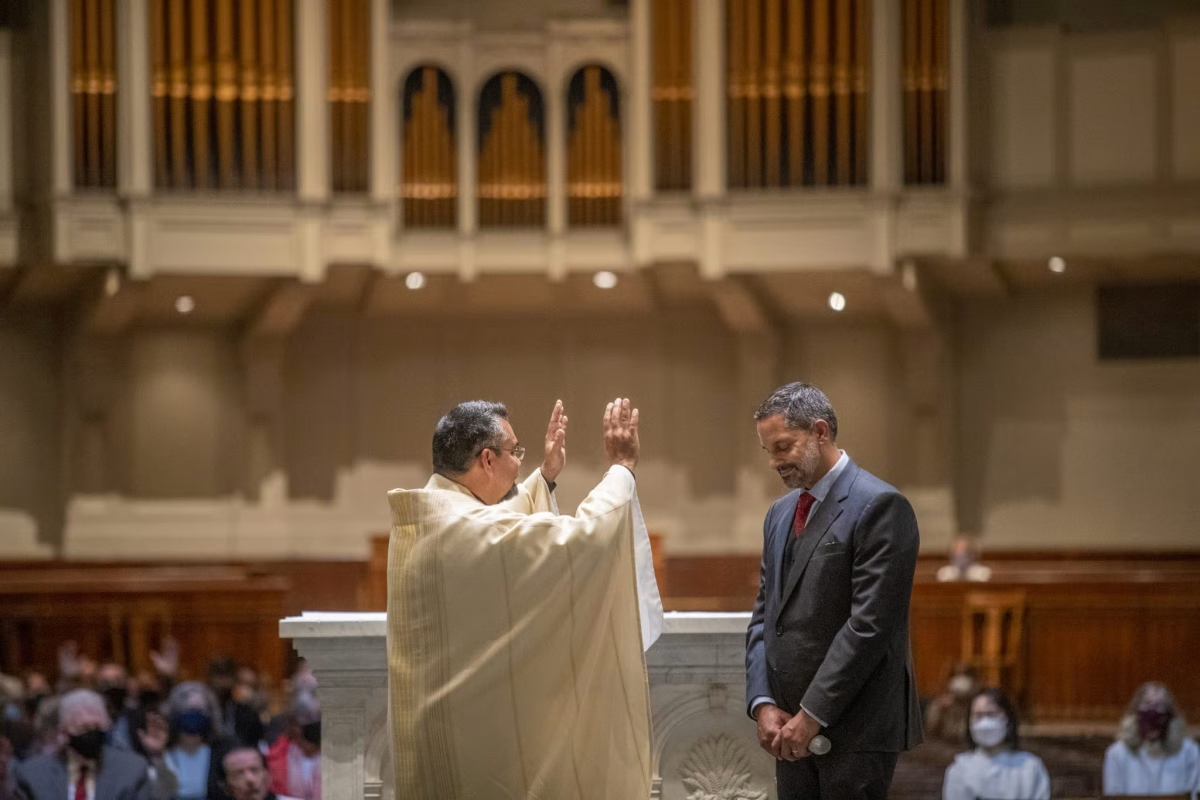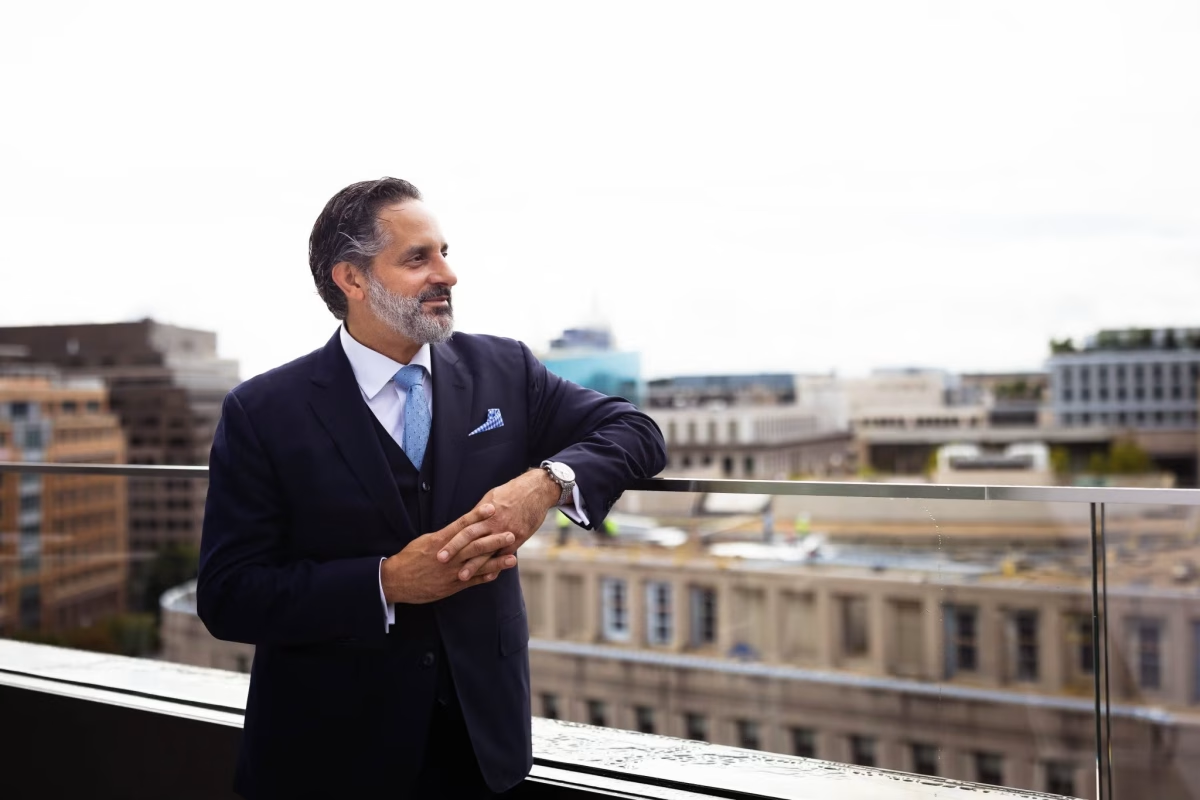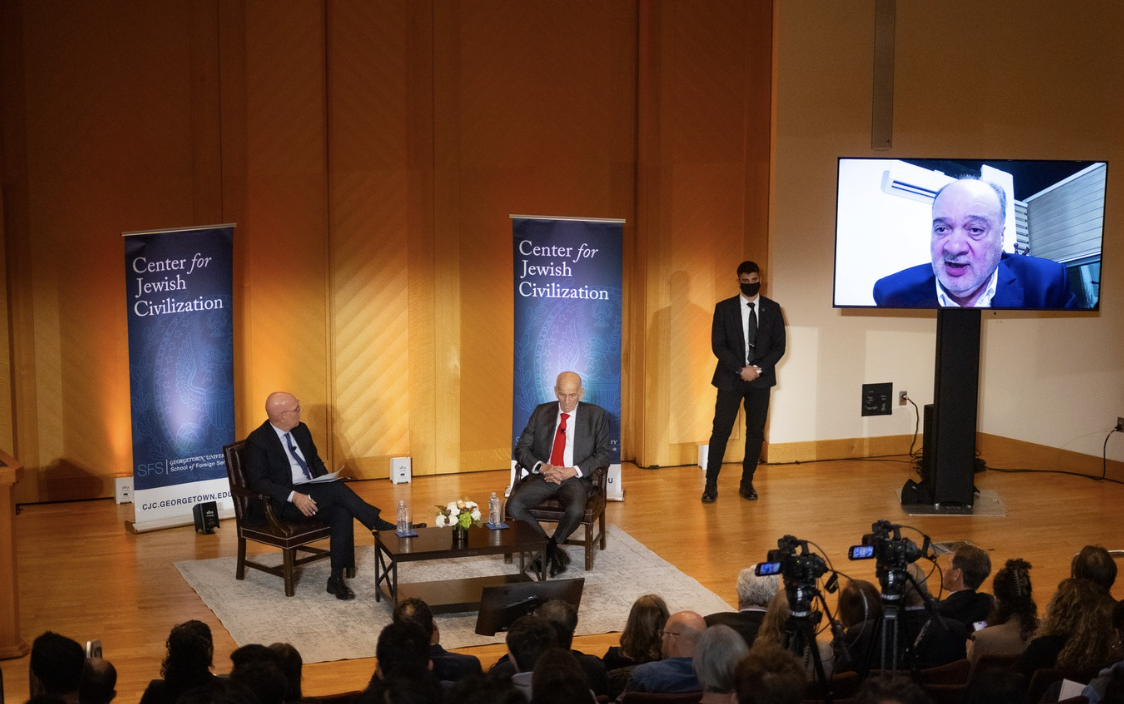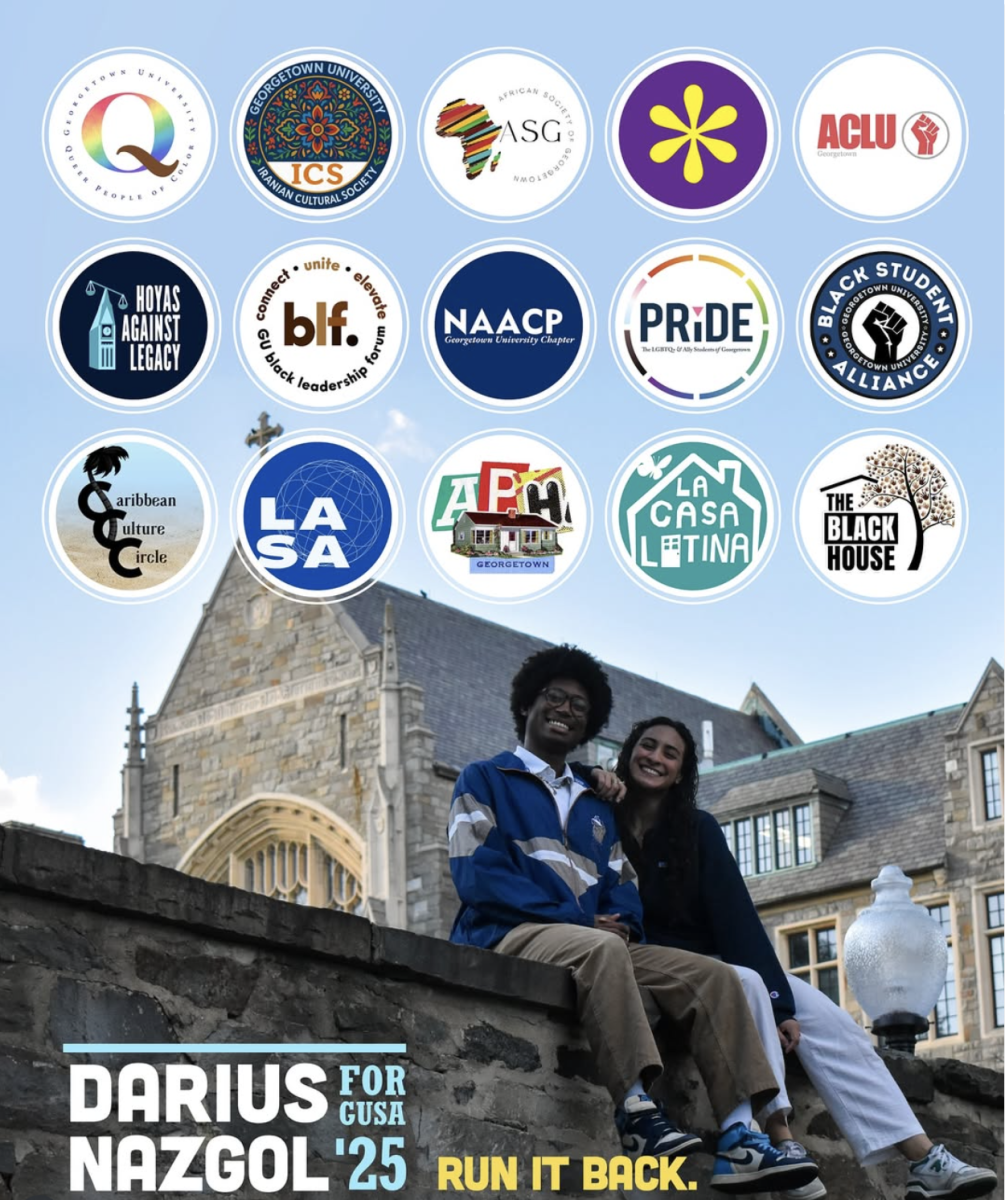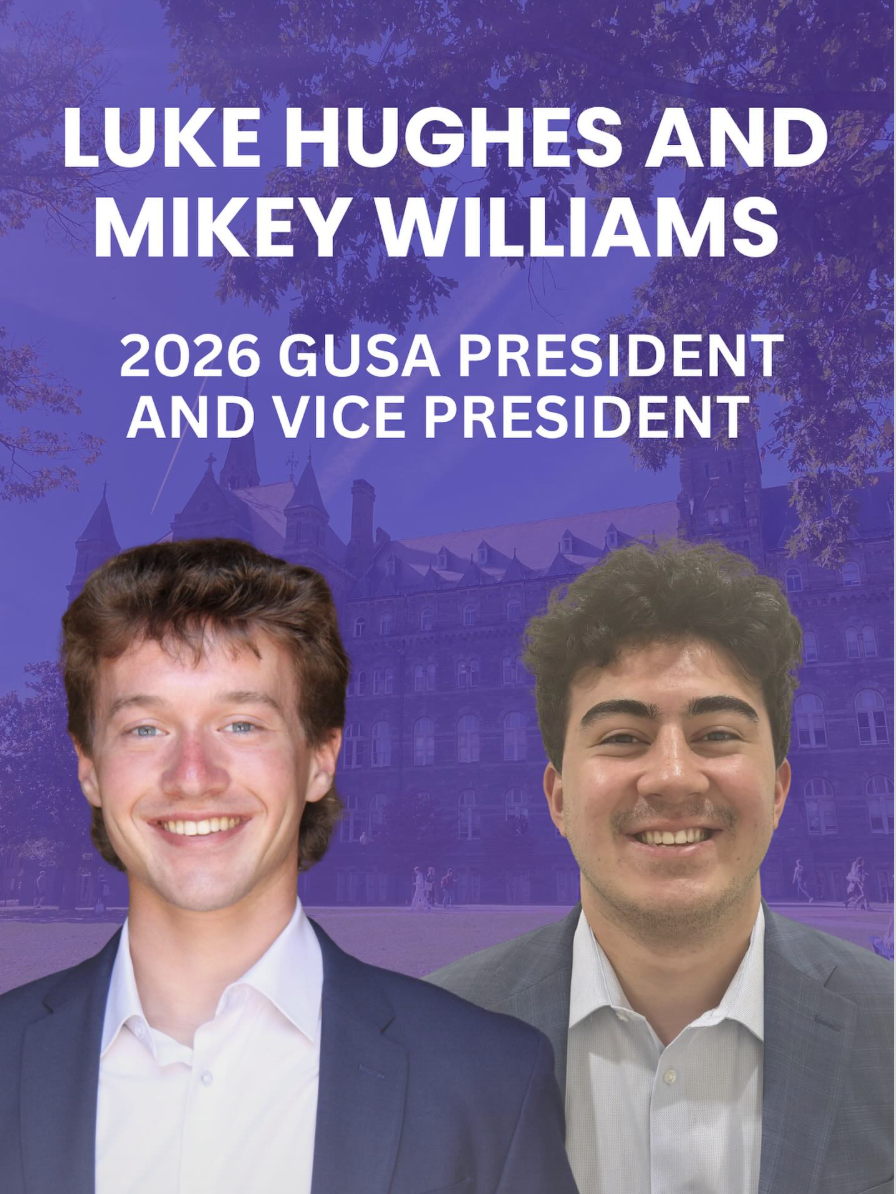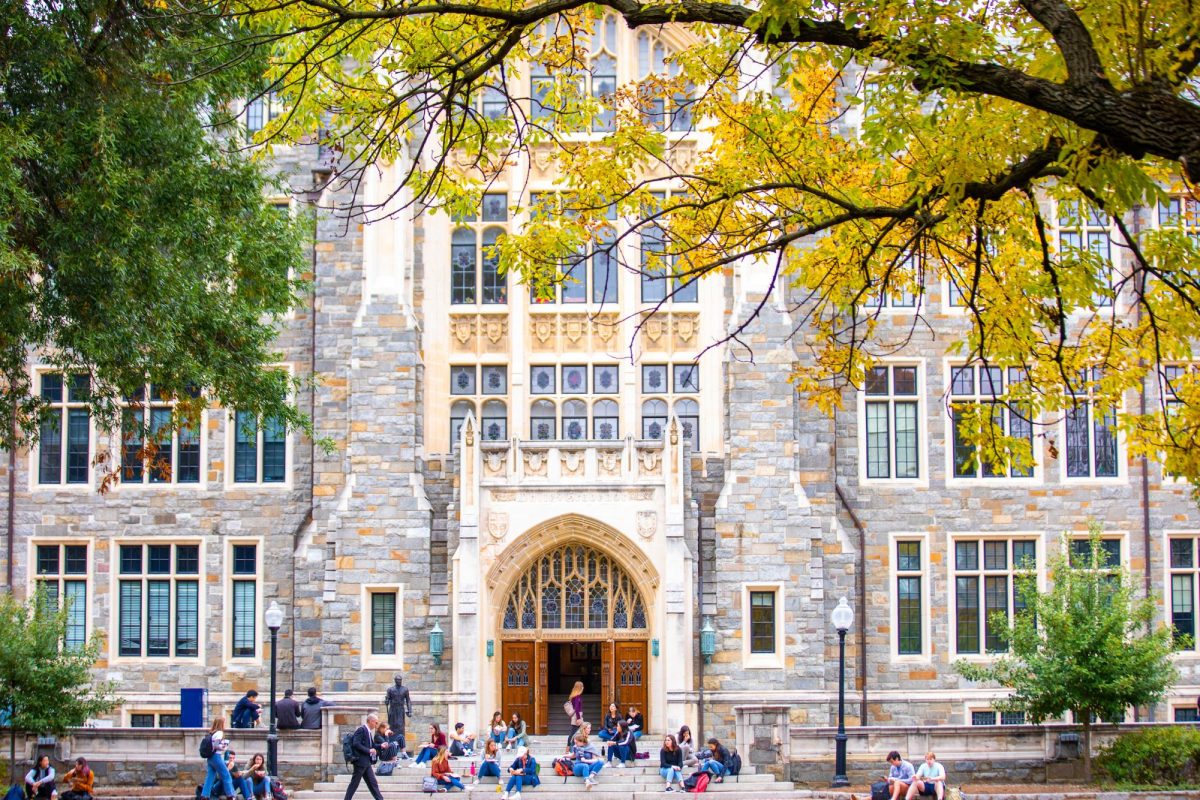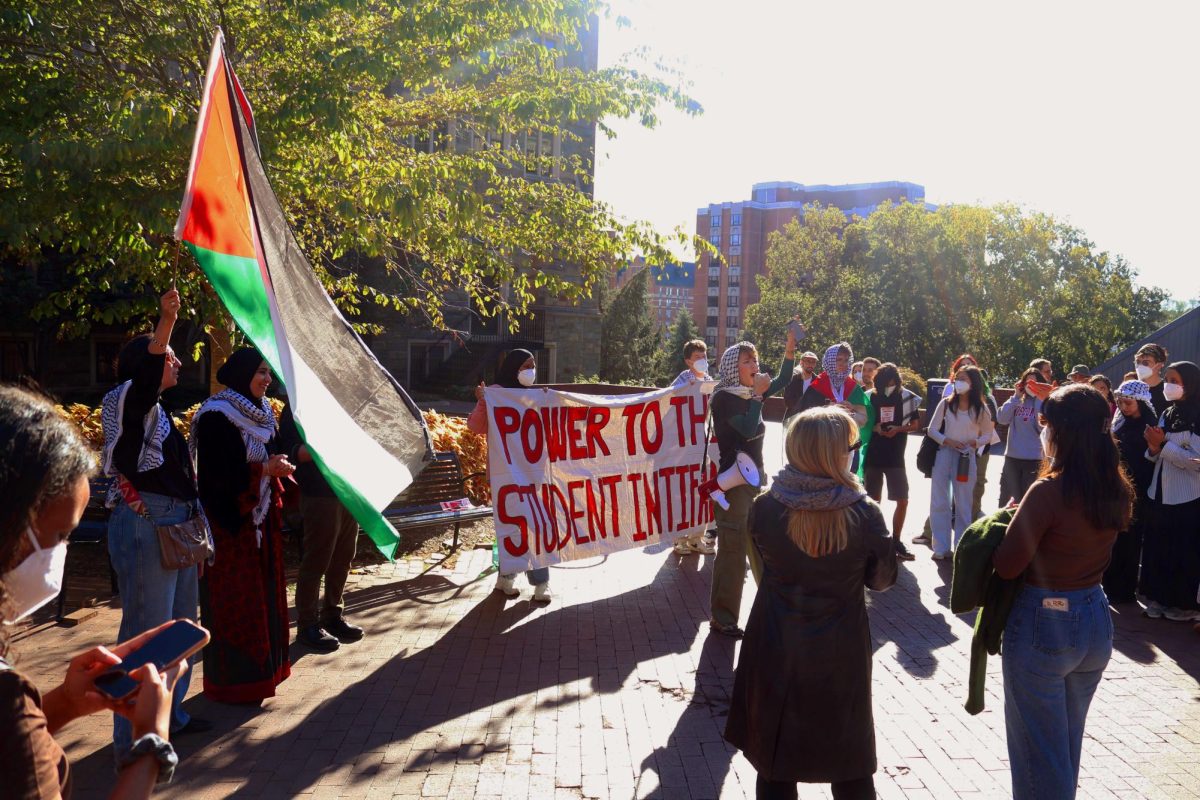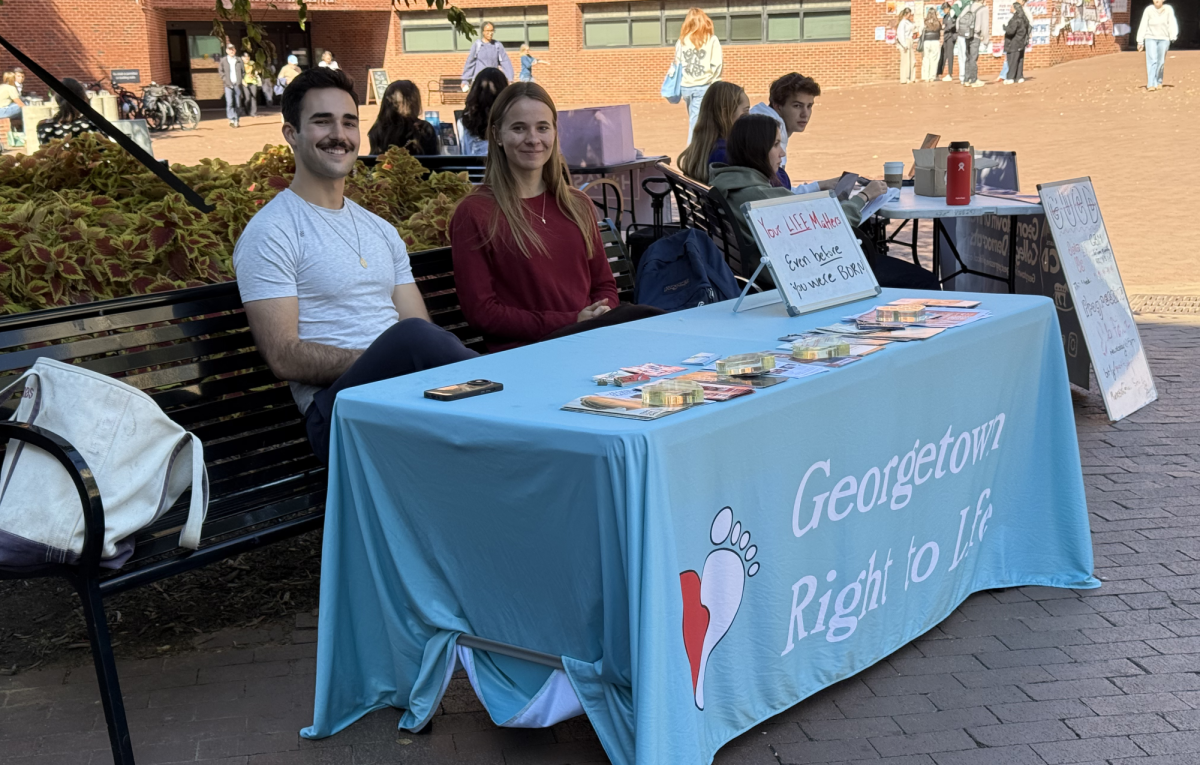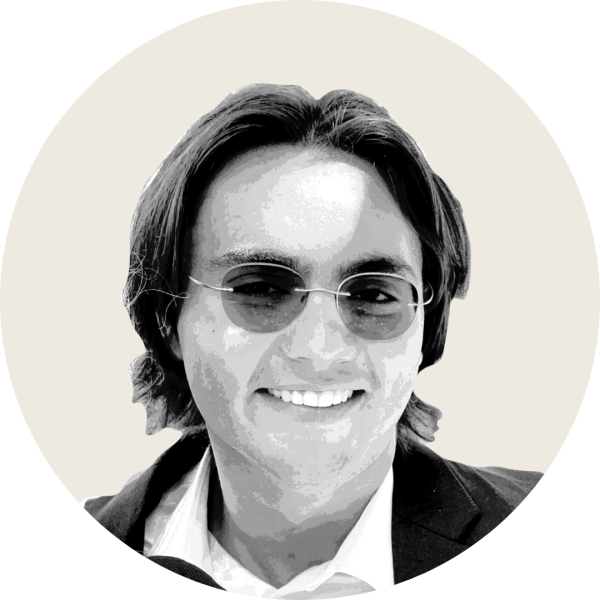When Eduardo Peñalver begins his tenure as Georgetown University’s president July 1, 2026, he will likely face questions on the university’s relationship with the federal government, investment in the Capitol Campus and financial security.
Peñalver will succeed President Emeritus John J. Degioia (CAS ’79, GRD ’95), who was Georgetown’s president for 23 years, and Interim President Robert M. Groves, who, at the time of Peñalver’s matriculation, will have been president for nearly one-and-a-half years. Peñalver will join Georgetown as the university faces increasing pressure from the federal government, scrutiny over its investment and endowment practices and a changing landscape across higher education.
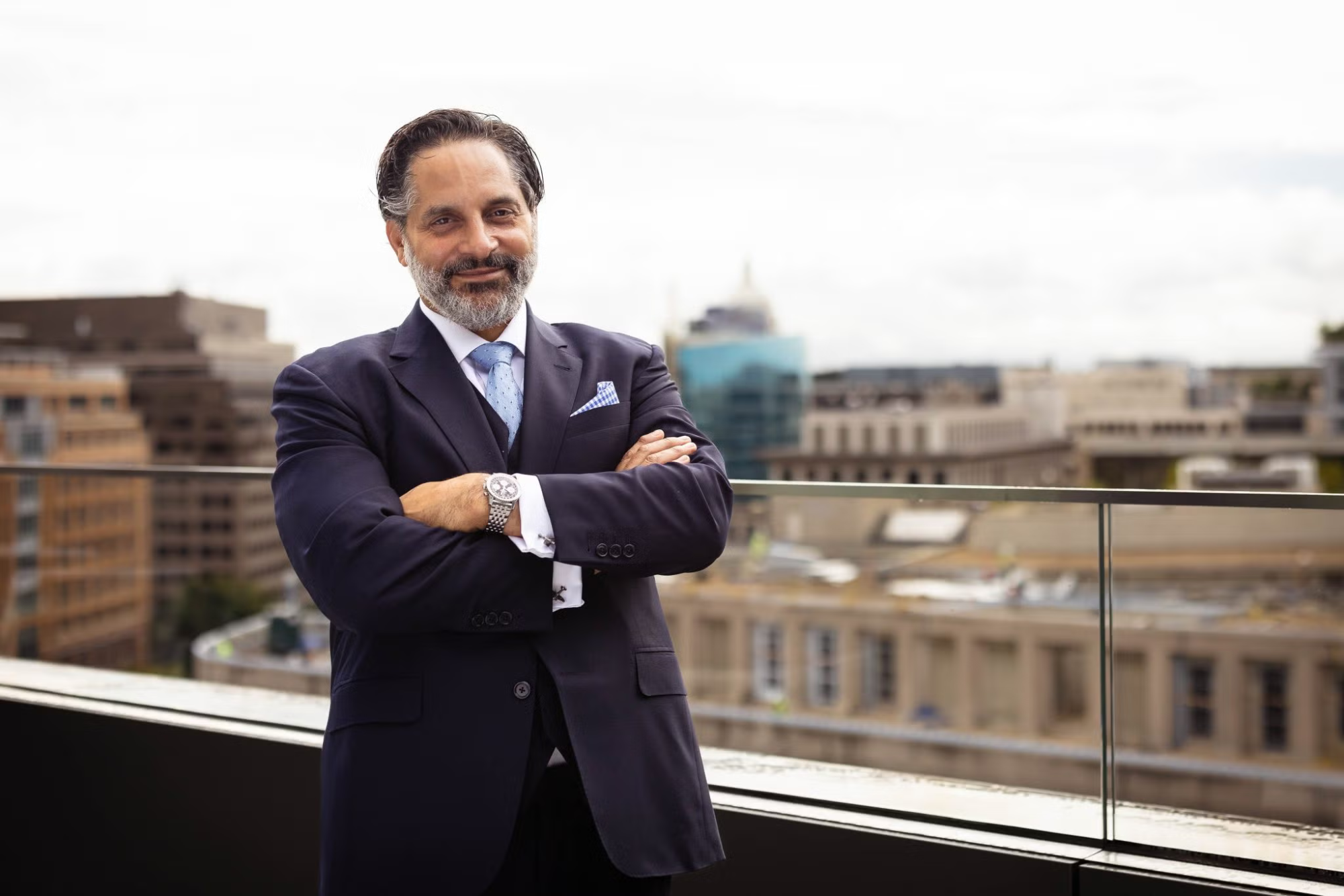
Peñalver said he will focus on centering Georgetown’s Jesuit values and deepening the university’s academic programs.
“This is an exciting moment in Georgetown’s history — with the expansion of the Capitol Campus, the creation of new, interdisciplinary programs, a renewed focus on access and affordability, and a commitment to finding innovative solutions to society’s most pressing issues,” Peñalver said in the university press release.
In his former administrative career as president of Seattle University and dean of Cornell Law School, Peñalver has addressed similar issues, including student protesters, divestment referendums, university expansion and federal attacks on diversity, equity and inclusion (DEI) programs.
Peñalver could confront Georgetown’s relationship with the federal government as President Donald Trump attempts to exert more control over universities across the United States.
While Georgetown’s undergraduate schools have not faced direct attacks on programs, Washington, D.C.’s former top federal prosecutor warned Georgetown University Law Center in February that his office would stop hiring Georgetown Law students if the university continues its DEI practices. Former Law Center Dean William Treanor rejected the letter as a violation of First Amendment protections.
The Hoya also reported in September that Georgetown quietly changed or removed diversity, equity and inclusivity-related language from several university webpages, though a university spokesperson said Georgetown “is not moving away from its Catholic and Jesuit mission.”
Peñalver has previously criticized Trump’s education policies and defended diversity efforts at both Seattle and Cornell, including saying that the Trump administration’s attacks on DEI in higher education appear to “threaten” universities.
“When faced with a bully, some people are tempted to quietly submit while others feel compelled to punch back,” Peñalver wrote to the Seattle University community in February. “But it is important to remember that we always retain the power to control how we respond, both emotionally and practically, to provocation. In moments of uncertainty and fear, it becomes even more important to hew closely to first principles and deeply held values.”
As Georgetown grapples with the impacts of federal grant cuts, Peñalver will also inherit financial uncertainty.
The budget cuts Groves announced in April expire Dec. 31, before Peñalver’s tenure begins, at which point the university plans on reassessing the state of its budget. Currently, the university has implemented a comprehensive hiring freeze and broad spending cuts to prioritize long-term financial stability, according to Groves.
Peñalver’s tenure also comes as the university is diverting resources to the Capitol Campus, increasing investment as it seeks to establish a greater presence in downtown Washington, D.C., and attract more students. However, many students have been skeptical of the campus’s growth, criticizing it for rerouting funds from the Hilltop.
Jeanne Ruesch, the presidential search committee’s vice chair, said she believes Peñalver will help grow both the Capitol and Hilltop Campuses based on his “valuable experience.”
“As Georgetown expands its academic programming and campuses on the Hilltop and Capitol Campus, we know he will continue to foster a community of care where all students can thrive,” Ruesch said in the university press release.
At Seattle University, Peñalver oversaw a historic deal with the Cornish College of the Arts, a small private school in Seattle, that transferred Cornish’s assets to Seattle University in June. The deal expanded the university’s campus to include the separate Cornish campus, which Peñalver said would bolster the university’s offerings.
As Georgetown looks to expand the Capitol Campus, it has also prioritized growing the university’s endowment, which has long been significantly smaller than that of peer institutions. In July, Georgetown welcomed a new chief investment officer, whose focus is augmenting the $3.6 billion endowment, which is significantly larger than Seattle University’s $318 million.
Peñalver will also enter Georgetown amid ongoing calls for the university to divest from Israel in response to the latest phase of the Israel-Hamas war.
In May, Groves rejected a student referendum calling for divestment from companies and institutions with ties to the Israeli military, saying it was incompatible with the university’s mission. Student calls for divestment remain ongoing, with support from candidates for student body president and regular protests on campus.
Peñalver did not explicitly reject Seattle University students’ calls for divestment from Israel, saying in a June 2024 interview that the university’s values and previous divestment from fossil fuels warrant “further conversations” about divestment.
“We’ve set the precedent with climate change of using the endowment as a vehicle for university policy,” Peñalver said in the interview. “There’s a risk in terms of taking that too far and how many different limitations can we put around our investment managers, but once we’re down that road, I think it’s only consistent to at least entertain the conversation.”
Students at Seattle University, similar to those at Georgetown, have called on Peñalver to make a statement about the Israel-Hamas war, criticizing the university’s neutrality. In May, Peñalver held a town hall about the protests and met with leaders from the university’s chapter of Students for Justice in Palestine (SJP).
Student protesters at Georgetown have also criticized the university’s time, place and manner restrictions in the Policy on Speech and Expression, including bans on excessive noise and a requirement that permits university officials to ask students to remove masks.
A university spokesperson said in September that the Policy on Speech and Expression protects community members’ free speech while reserving the university’s right to reasonable restrictions.
When Peñalver was an undergraduate student at Cornell, he made national headlines for leading a sit-in of 120 Hispanic students demanding that the school’s president meet with them after vandalism of Hispanic artwork on display. The occupation lasted four days and administrators considered suspending Peñalver, according to The Cornell Daily Sun.
“We’ve been taught by experience that this is how minorities accomplish things at Cornell,” Peñalver said at the time to The New York Times.
As late as June 2024, Peñalver defended his actions, writing to The Cornell Daily Sun that the occupation “expanded opportunities for Latin students by increasing the visibility of our issues on campus when they had largely flown under the radar up to that point.”
Peñalver has repeatedly said that his position as the president of a Jesuit university, and previously the dean of an Ivy League law school, demands advocating for democracy, equality and justice.
When he joined Seattle University, Peñalver said Jesuit universities such as Seattle University must be a voice advocating for “multiracial democracy.”
“They’re places for dialogue, where people with different identities and experiences and values come together and encounter one another and engage with one another,” Peñalver said in a 2020 speech. “And so, the development of a truly diverse and inclusive Seattle University community, one that includes faculty, students and staff alike, is fully in keeping with its academic and Jesuit values.”


